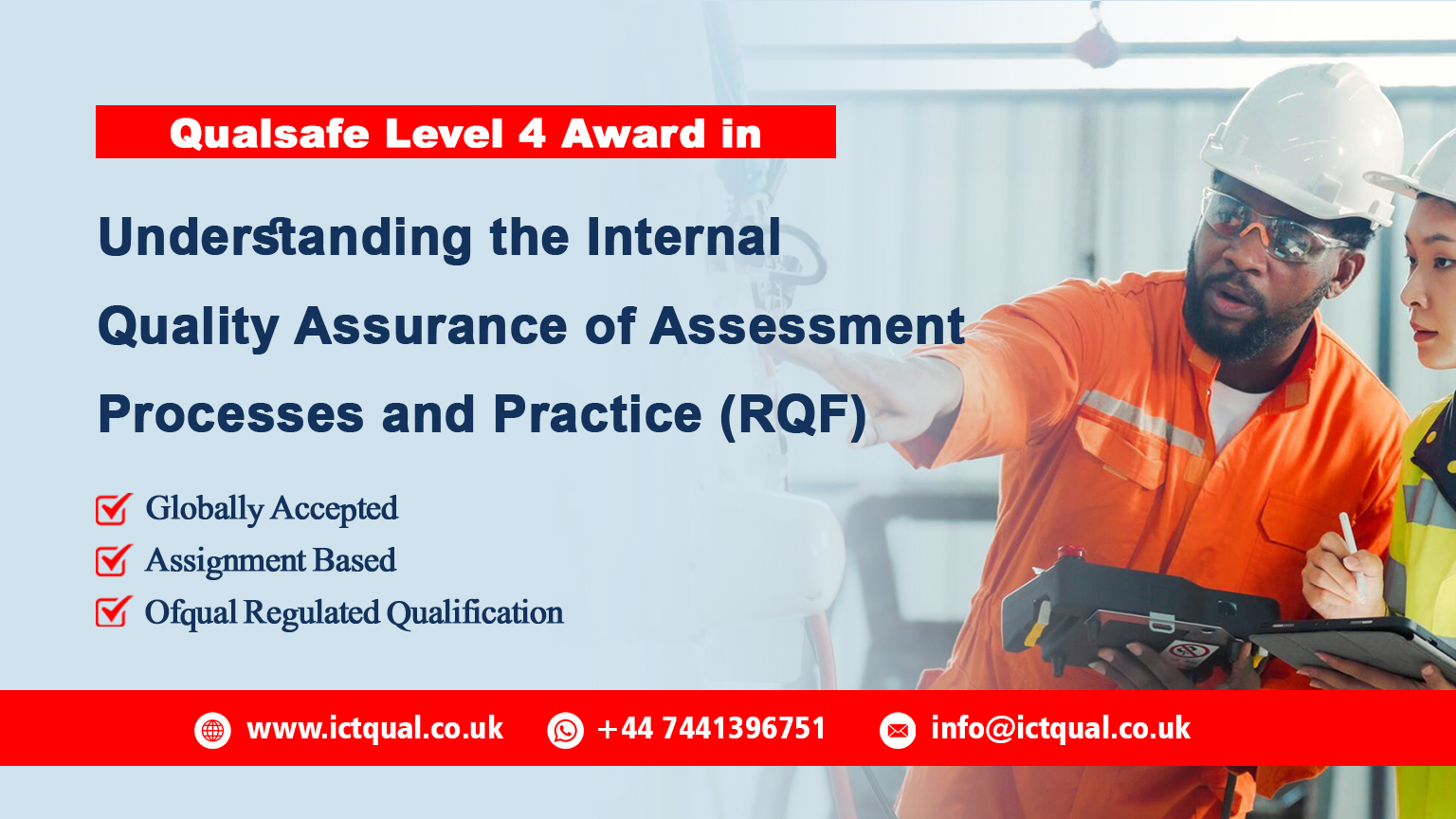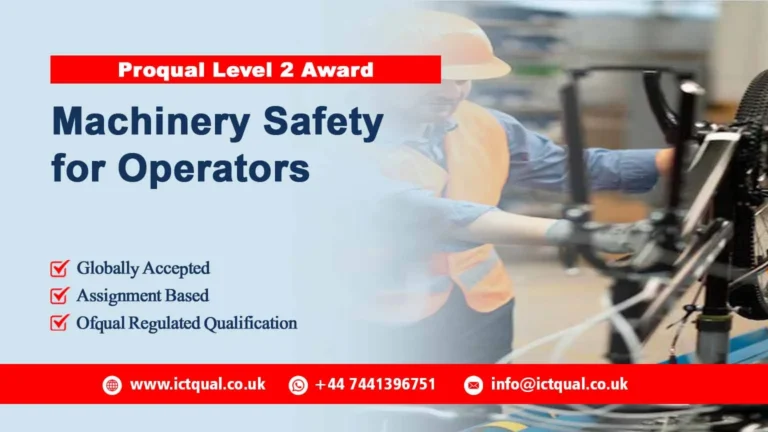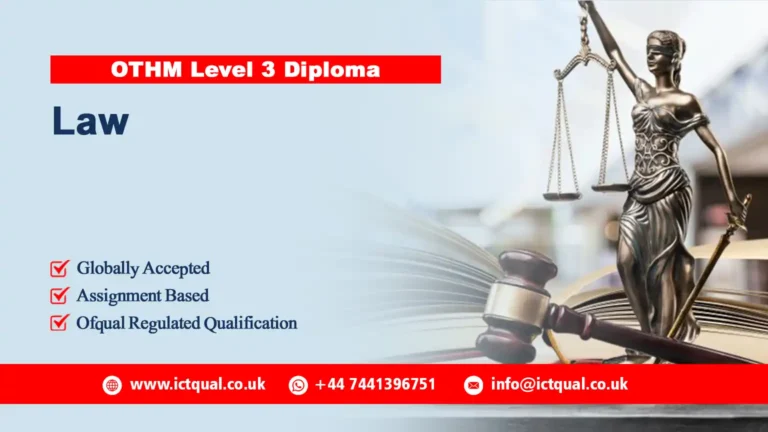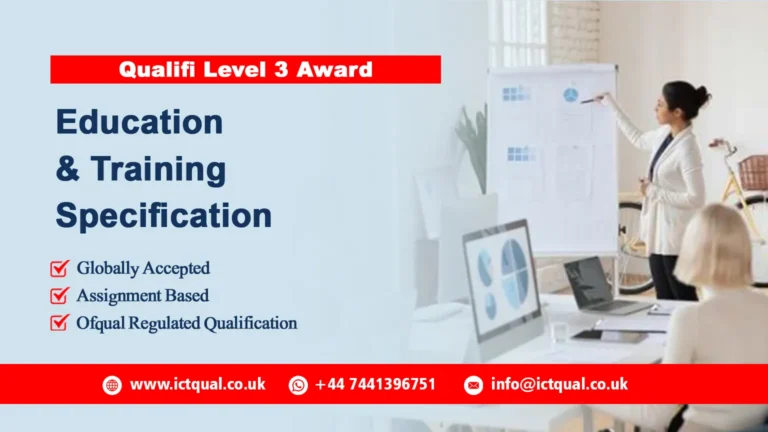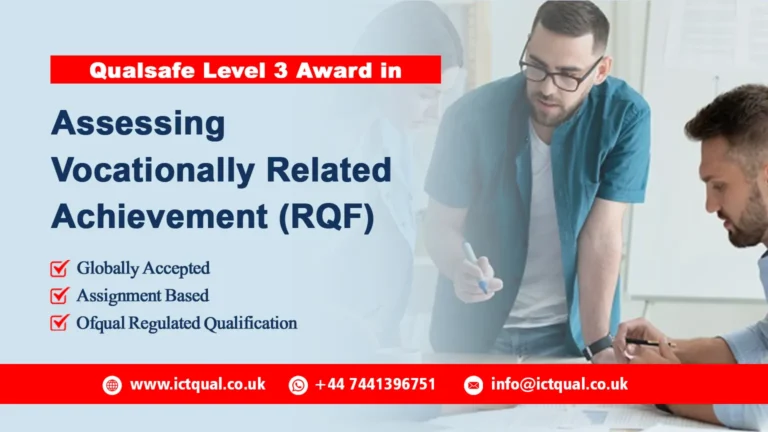The Qualsafe Level 3 Award in Understanding the Principles and Practices of Assessment (RQF) is a nationally recognized qualification designed for individuals seeking to become qualified assessors in various educational and vocational settings. This comprehensive course equips learners with the essential skills needed to carry out effective assessments, ensuring they are prepared to evaluate learners confidently and accurately. Whether you’re new to assessing or looking to formalize your skills, this qualification provides a flexible learning path suitable for professionals across different sectors.
The course covers a wide range of topics, including the core principles and practices of assessment, how to develop effective assessment plans, the importance of feedback, and quality assurance processes. With a focus on practical, real-world application, the Level 3 Award ensures that you gain a thorough understanding of the assessment cycle, helping you to support learners in achieving their goals. This qualification is ideal for individuals working in education, vocational training, apprenticeships, or professional development roles.
Achieving the Qualsafe Level 3 Award offers numerous benefits, such as improving your career prospects as a certified assessor, enhancing your ability to provide constructive feedback, and meeting regulatory standards within the RQF framework. Whether you aspire to become an assessor or wish to deepen your understanding of assessment principles, this qualification is a valuable asset that can open doors to new opportunities and professional growth.
Start your journey today by enrolling in the Qualsafe Level 3 Award in Understanding the Principles and Practices of Assessment (RQF) and take the next step in becoming a skilled and certified assessor.
The Qualsafe Level 3 Award in Understanding the Principles and Practices of Assessment (RQF) is a nationally recognized qualification designed for individuals seeking to become qualified assessors in various educational and vocational settings. This comprehensive course equips learners with the essential skills needed to carry out effective assessments, ensuring they are prepared to evaluate learners confidently and accurately. Whether you’re new to assessing or looking to formalize your skills, this qualification provides a flexible learning path suitable for professionals across different sectors.
The course covers a wide range of topics, including the core principles and practices of assessment, how to develop effective assessment plans, the importance of feedback, and quality assurance processes. With a focus on practical, real-world application, the Level 3 Award ensures that you gain a thorough understanding of the assessment cycle, helping you to support learners in achieving their goals. This qualification is ideal for individuals working in education, vocational training, apprenticeships, or professional development roles.
The Qualsafe Level 3 Award in Understanding the Principles and Practices of Assessment (RQF) has 1 unit that
Trainee assessors are required to complete in order to achieve the qualification. Qualification unit 1 has 24 GLH, Credit value of 3.
Qualification Unit 1
| Sr# | Unit Title |
|---|---|
| 1 | Understand the principles and requirements of assessment |
| 2 | Understand different types of assessment method |
| 3 | Understand how to plan assessment |
| 4 | Understand how to involve learners and others in assessment |
| 5 | Understand how to make assessment decisions |
| 6 | Understand quality assurance of the assessment process |
| 7 | Understand how to manage information relating to assessment |
| 8 | Understand the legal and good practice requirements in relation to assessment |
This course is designed for:
- Aspiring Assessors: Those who want to pursue a career as an assessor in educational, vocational, or training environments. This course provides the foundational knowledge needed to evaluate learners effectively.
- Teachers and Trainers: Educators looking to enhance their skills in learner evaluation and assessment within academic institutions, apprenticeship programs, or professional development training.
- Experienced Professionals: Individuals with practical experience in assessment who want to formalize their skills with a recognized qualification. This course provides formal certification that can improve career prospects.
- Human Resources and Workplace Trainers: Professionals responsible for staff training and development who need to assess the competencies and progress of employees or trainees in workplace settings.
- Coaches and Mentors: Those involved in coaching or mentoring, seeking to gain a deeper understanding of assessment methods to provide structured and measurable feedback to their learners.
- Regulatory Compliance Officers: Professionals involved in quality assurance and compliance who need to understand assessment processes to ensure that evaluation practices meet regulatory standards.
Here are the outcomes for each of the listed study unit:
- Understand the Principles of Assessment: Gain a thorough understanding of the fundamental concepts and principles that underpin effective assessment practices across various learning environments.
- Develop Assessment Plans: Learn how to design and implement structured, appropriate assessment plans tailored to individual learners’ needs and specific course requirements.
- Assess Learner Performance: Acquire the skills to conduct reliable, valid, and fair assessments using different assessment methods, ensuring accurate evaluations of learner knowledge, skills, and competencies.
- Provide Constructive Feedback: Understand how to offer meaningful and actionable feedback to learners, supporting their growth and helping them improve performance through targeted suggestions.
- Apply Quality Assurance Processes: Learn about the importance of quality assurance in the assessment process and how to ensure consistency, reliability, and compliance with regulatory standards.
- Understand Regulatory Requirements: Gain knowledge of the relevant legislation and regulatory frameworks that govern assessment practices, ensuring assessments meet industry and educational standards.
- Evaluate and Improve Assessment Practices: Develop the ability to reflect on and improve assessment practices by critically evaluating current methods and identifying areas for enhancement.

